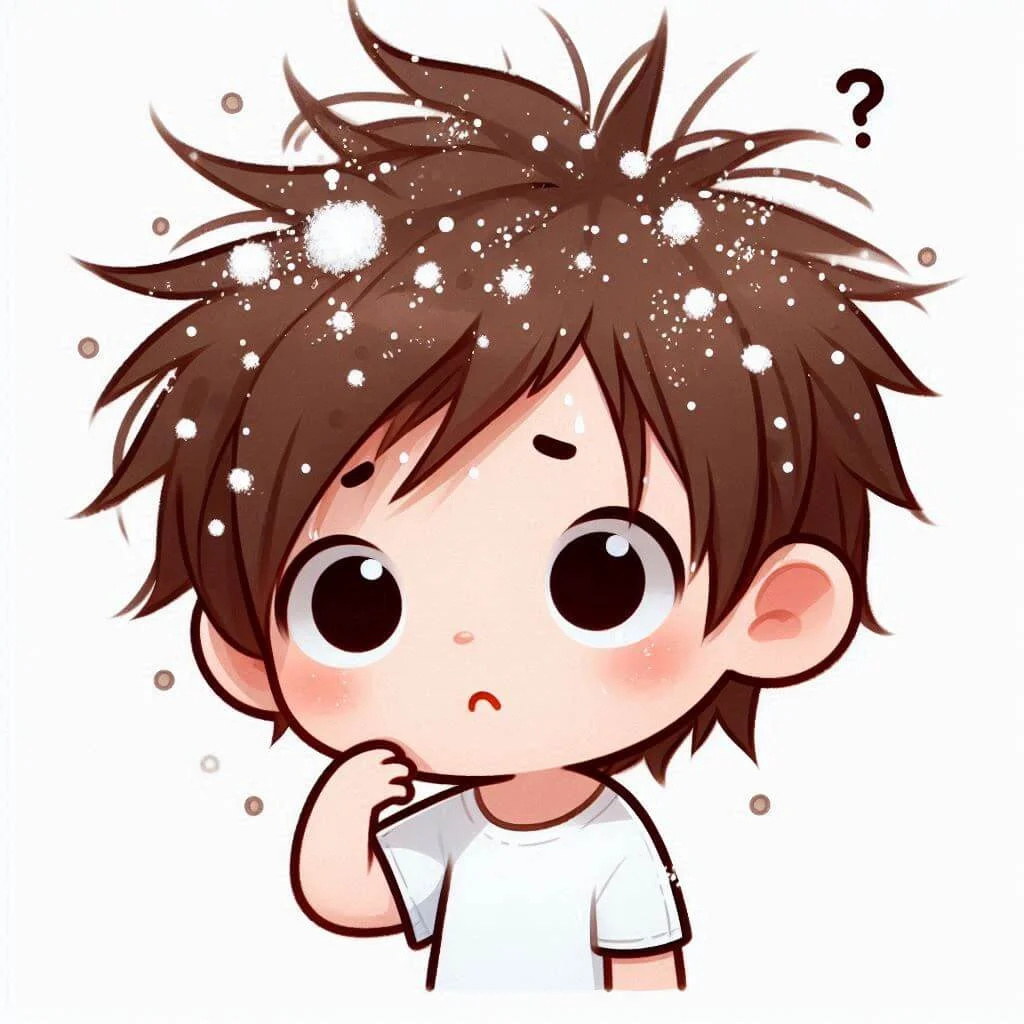An itchy scalp is a common complaint among children, often causing discomfort and distress. While it can be a minor annoyance, it’s essential for parents to understand the potential causes and when to seek medical attention. This article will provide a comprehensive overview of itchy scalp in children, offering guidance on common causes, treatment options, and prevention strategies.
Understanding the Itch
An itchy scalp can be incredibly bothersome for children, disrupting sleep, concentration, and overall well-being. It’s important to differentiate between a temporary itch and a persistent problem. While occasional scratching is normal, persistent itching may indicate an underlying condition.
It’s crucial to remember that children often scratch excessively when their scalp is itchy, which can lead to skin irritation, sores, and even secondary infections. This cycle of itch-scratch-itch can be difficult to break, making it essential to identify and address the root cause of the itch.
Common Causes of Itchy Scalp
Several factors can contribute to an itchy scalp in children. Let’s explore the most common ones:
Head Lice

Head lice are tiny, wingless insects that live on the human scalp and feed on blood. They are highly contagious and spread through direct head-to-head contact. Symptoms of head lice include intense itching, difficulty sleeping, and visible nits (eggs) attached to hair shafts.
It’s important to note that not all children with head lice experience severe itching. Some may have no symptoms at all, while others may have mild discomfort. This can make it challenging to detect an infestation early on.
- Treatment: Over-the-counter lice shampoos or prescription medications can effectively eliminate lice. However, it’s crucial to follow the instructions carefully and repeat the treatment as necessary.
- Prevention: Teach children about the importance of avoiding head-to-head contact with others, especially in public places like schools and playgrounds. Regular hair checks can also help detect infestations early.
Dandruff and Seborrheic Dermatitis
Dandruff is characterized by flaky, white skin on the scalp, while seborrheic dermatitis causes oily, scaly patches. Both conditions can lead to itching, redness, and sometimes, a greasy appearance of the scalp.
These conditions are more common in infants and adults, but they can also affect children. Factors like hormonal changes, stress, and underlying medical conditions can contribute to their development.
- Treatment: Over-the-counter dandruff shampoos containing zinc pyrithione or ketoconazole can help manage symptoms. In severe cases, a dermatologist may prescribe stronger medications.
- Prevention: Regular shampooing and avoiding harsh hair products can help prevent dandruff and seborrheic dermatitis.
Eczema
Eczema, also known as atopic dermatitis, is a chronic skin condition that causes dry, itchy patches. It can affect the scalp, leading to redness, scaling, and inflammation. Eczema is often accompanied by other symptoms, such as dry skin, food allergies, and asthma.
- Treatment: Moisturizers and topical corticosteroids can help manage eczema symptoms. In severe cases, oral medications may be necessary.
- Prevention: Identifying and avoiding triggers, such as allergens or irritants, is crucial for managing eczema. Keeping the scalp hydrated is also essential.
Allergic Reactions
Certain hair products, shampoos, or dyes can trigger allergic reactions, causing itchy scalp. Symptoms may include redness, swelling, and small bumps in addition to itching.
- Treatment: Discontinuing the use of the offending product is essential. Antihistamines may help relieve itching.
- Prevention: Carefully selecting hair care products and conducting patch tests when trying new ones can help prevent allergic reactions.
Other Potential Causes
While less common, other conditions can cause itchy scalp in children, including:
- Fungal infections: These can cause redness, scaling, and hair loss.
- Psoriasis: A chronic autoimmune condition that can affect the scalp.
- Ringworm: A contagious fungal infection that causes a circular rash.
If you suspect any of these conditions, it’s essential to consult a pediatrician or dermatologist for proper diagnosis and treatment.
When to Seek Medical Attention
While many cases of itchy scalp can be managed at home, it’s essential to consult a pediatrician or dermatologist if:
- The itch is severe or persistent
- There are signs of infection, such as pus, scabs, or fever
- Hair loss occurs
- Over-the-counter treatments are ineffective
- There are other concerning symptoms, such as redness, swelling, or blisters
- Home Remedies and Prevention
Several home remedies can help soothe an itchy scalp
- Gentle shampooing: Use a mild, fragrance-free shampoo to cleanse the scalp without stripping away natural oils.
- Moisturization: Applying a gentle moisturizer to the scalp can help hydrate and relieve itching.
- Cold compresses: A cool compress can temporarily alleviate itching.
- Avoiding irritants: Stay away from harsh hair products, hot water, and excessive scratching.
Preventing itchy scalp involves good hygiene practices, such as regular shampooing, avoiding sharing personal items like hats or brushes, and teaching children about the importance of handwashing.
Conclusion
An itchy scalp can be a bothersome issue for children, but understanding the potential causes and implementing appropriate treatment and prevention strategies can help alleviate discomfort and promote overall well-being. If you’re concerned about your child’s itchy scalp, don’t hesitate to consult a healthcare professional for proper diagnosis and guidance.